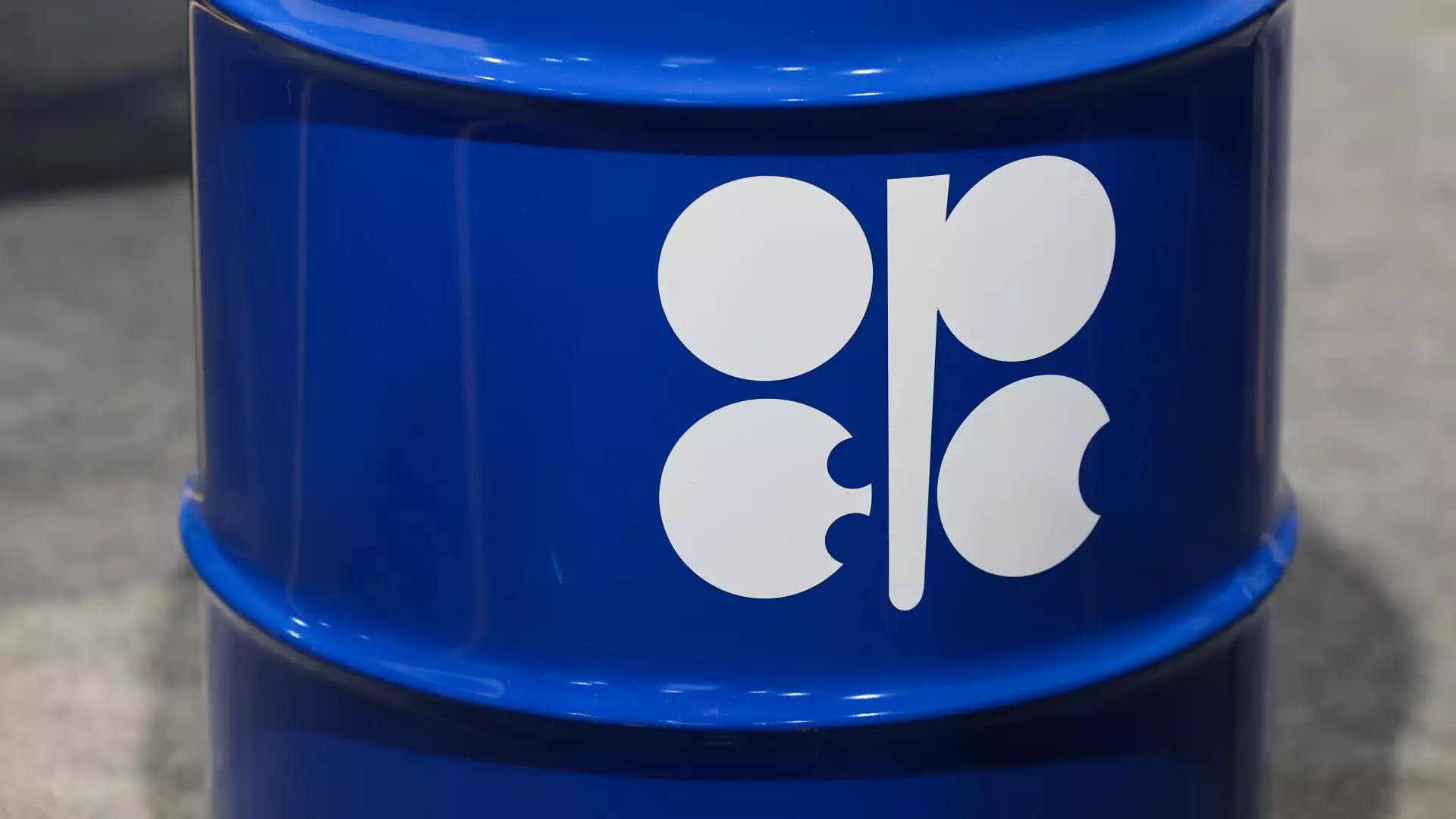In a landscape that has been increasingly hostile toward fossil fuels, the decision by OPEC+ to raise oil production by 411,000 barrels per day for July illustrates a brazen prioritization of market share over economic stability. The coalition, comprising major oil-producing nations including Saudi Arabia and Russia, seems determined to punish over-producing members like Iraq and Kazakhstan while attempting to reclaim control lost to competition, particularly from U.S. shale producers. One could argue that this approach is not just desperate but also reckless, further entrenching a global dependency on oil while disregarding the repercussions for pricing and market dynamics.
The Market’s Reaction: A Clear Warning
The immediate reaction by the markets to OPEC’s decision was telling. U.S. crude futures experienced a notable decline, dropping significantly in response to OPEC+ strategies that many analysts, including Harry Tchilinguirian, interpreted as a zero-sum game focused more on volume than value. As oil prices hovered around $60-63 per barrel, the whispering sentiment was that investors were losing faith in the stability of the oil market. It raises an ironic but poignant question—if OPEC+ cannot stabilize prices amid soaring production, what future does this hold for both investors and the economies reliant on these fluctuations?
The Economics of Overproduction
The insistence on ramping up production by OPEC+ despite falling crude prices showcases a bewildering lack of foresight. This strategy appears to be a thinly veiled attempt to stack short-term profits at the expense of long-term sustainability. With member countries engaging in behaviors that could best be described as self-destructive, the ramifications could ripple outwards, impacting not just oil prices but also the global economy at large. Market fundamentals suggest that this may not be a time to increase supply, particularly when the world is cautiously navigating the fragile waters of economic recovery post-pandemic.
The Illusion of Strong Market Fundamentals
Citing “steady global economic outlook” and “low oil inventories,” OPEC+ seeks to justify its aggressive stance. However, this rhetoric is dangerously disconnected from the realities on the ground. As observed by Jorge Leon, the decisions made by OPEC+ seem to be a series of confrontational strikes rather than diplomatic overtures toward stability. The notion that increasing output could potentially alleviate prices is misleading. The sharp increase in output could actually destabilize markets further, impacting not just member nations but also economies globally.
The Future of Oil: A Narrow Path Ahead
As higher summer oil demand is anticipated, one would think this would prompt caution among the producers. Yet, the reality appears to be a reckless race for supremacy in an oil market that is not only glutted but also vulnerable to external shocks—especially as global policies increasingly pivot to renewable energy. Even within the OPEC+ ranks, voices like Algeria’s warning against further hikes demonstrate the fissures in the alliance. The dichotomy between profit and prudence has never been so pronounced, leaving the organization navigating a precarious future.
In light of recent decisions and the evident challenges ahead, is it not time for OPEC+ to reconsider its foundational strategies? Clinging to outdated methods of control while ignoring the winds of change could result in catastrophic consequences—not just for OPEC+ nations but for the broader global economy that is intertwined with energy markets. The reckless pursuit of market share not only hints at desperation but also paints a picture worth scrutinizing by economists, policymakers, and citizenry alike in a world that is slowly awakening to a sustainable future.

Leave a Reply